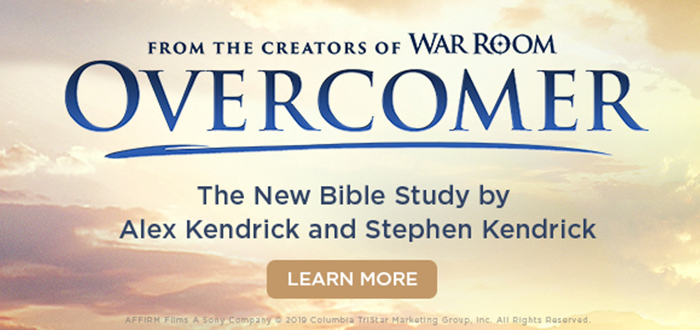“Who are you really?” It’s a fundamental question we all have to answer. Our first instinct may be to respond with a name. After that we tend to share a résumé of what we do or whom we’re related to. Should we define ourselves by the members of our family or even by what other people say about us? Maybe who we are is something deeper.
Identity is what people believe to be most true about themselves. It’s their source of value and worth. Tim Keller has written, “Our need for worth is so powerful that whatever we base our identity and value on we essentially ‘deify.’ We will look to it with all the passion and intensity of worship and devotion, even if we think ourselves as highly irreligious.” (1)
If people deify or idolize whatever they base their identity on, what happens when that source of meaning fails us or is taken away? It doesn’t just alter a worldview. It crushes the soul.
Enter Overcomer. Regardless of the intention with which you approach this study, the goal is a definitive answer to the basic question “Who are you?”
This Bible study, featuring group discussions, film clips, and personal studies, is designed to help you firmly establish your value and worth in Christ. You’ll encounter a variety of Old and New Testament giants who either demonstrated an identity firmly rooted in God’s truth or warn you of the danger of choosing alternative identities. Along the way you’ll have opportunities to determine whether your identity may be ill-defined and to be drawn back to the only source of meaning in life, ever closer to Christ.
1. Timothy Keller, The Reason for God: Belief in an Age of Skepticism (New York: Penguin, 2018), 164.
Who You Are Starts with Where You Come From
Create a list of people and priorities in your life that are important to you. Be as specific as you like, but in some cases a category will suffice. For example, you can record “My family” instead of listing each individual member.
Take inventory to make sure your list is complete, including items of even nominal importance.
Now the exercise becomes more challenging. Start marking entries off your list in order, from least to greatest importance. Which ones can you live without? Narrow your list to only two or three of your top priorities. Those indicate not only what’s of great worth to you but also what’s absolutely vital in making you who you are.
The old expression “You are what you eat” reminds you to make wise choices about healthful eating, but it holds little weight in creating an identity. A truer phrase is “You are what’s important to you.”
You define yourself by your values. The problem with that truth is the word your, which implies your own sovereignty despite your vast limitations as a mortal. Who are you to determine who you are? Even if you have that authority, where was it derived from? Scripture has the answer.
God said, “Let us make man in our image, according to our likeness.
They will rule the fish of the sea, the birds of the sky, the livestock,
the whole earth, and the creatures that crawl on the earth.”
GENESIS 1:26
What description of humanity’s inherent nature and position did God offer in this verse?
God didn’t wait to confer with the man to determine what his nature should or shouldn’t include and what his calling or direction in life should be. God also created you to bear His image. Right from the beginning, before any of us were formed, God had a plan. For the couple in the garden, that included a definitive purpose.
Read Ephesians 2:10 and rewrite it in your own words.
These words by Paul follow a powerful description of salvation (see vv. 8-9). God has miraculously and graciously saved us to accomplish the purpose He intended.
How does knowing and being reminded of where you come from and why you were created shape your identity?
Revisit your lists for the week, both the one you created in the group session and the one you recorded at the beginning of this personal study. Which descriptions of you and values you hold are consistent with the image of God in you and the good work God planned for you?
Which ones might you need to reevaluate? End today’s study by asking God to show you the priorities and pursuits you need to eliminate and the ones you need to embrace in order to define yourself by His purpose for you.
All content above is excerpted from the Overcomer Bible Study. Find out more about the Bible study here.





Leave a Comment: